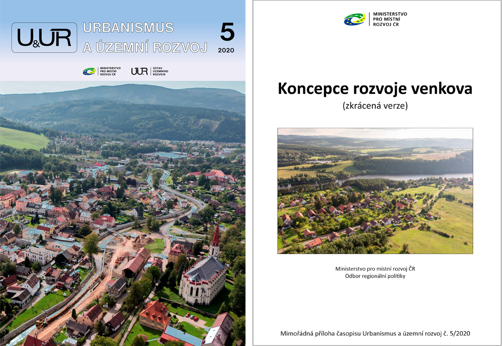
Participative mapping of locations with a high fear of crime as a contribution to urban development, by Petr Šimáček, Daniel Doležal, Miloslav Šerý, David Fiedor, Jiří Pánek and Zdeněk Szczyrba
The development of urban settings has long been an exclusive domain of urban architects and local decision-makers. Nevertheless, with the highlighting in recent years of endogenous approaches to spatial development, there are increasing efforts to involve local populations in the process of planning. Their involvement and a bottom-up approach are two basic elements of sustainability in spatial development. This article describes this approach in the context of mapping locations with a high fear of crime factor in the town of Přerov. In general terms, mapping of places of negative reputation is important for the local decision-making sphere as it generates spatial information and knowledge for strategic planning of spatial development. In other words, it aims at measures for the reduction or elimination of fear in the population and, as a consequence, improvement in the quality of life in urban settings. Therefore, participative mapping of locations of fear of crime can be considered as the inhabitants’ contribution to the development of their towns/cities. In this respect, though, it is necessary to distinguish consistently between locations with a high fear of crime factor and those with a genuine increase in crime and law infringement. In fact, numerous locations with low evidence of crime or law infringement have retained their fear-inspiring image. Fear of crime is highly subjective and influenced by a variety of factors. In spite of this, because of its powerful impact on the quality of life, it is necessary for these locations to be addressed by professionals in spatial development.
Plzeň: Approach of a city to climate change, including a proposal for revitalization of public space in a housing
zone, by Richard Jedon, Josef Váně and Kristýna Zýková
Climate change adaptation has been a topical issue for a long time now. Changes in the distribution, frequency and intensity of precipitation, increases in temperature and rise in the incidence of extreme weather, all caused by climate change, represent an ever greater hazard for the inhabitants of urban areas. In 2015, Government Decree 861 approved the Strategy on Adaptation to Climate Change in the Czech Republic, a framework document for development and implementation of adaptation strategies at regional and local levels. This strategic document presents climate change as a source of potential threat to society and the natural environment. It proposes appropriate adaptation to these changes as the most feasible way to reduce their negative impacts.
A few notes on obligatory respecting of original architectural morphology of buildings and the urban-planning principles of earlier housing development, by Martin Ondrouch
The aim of this article is to point out several circumstances for the discharge of powers transferred to municipalities with extended powers, specifically to first-instance authorities of spatial planning. Not only is the operation of these authorities extensive and highly professional, but it has an important impact on the development of urban settings in the Czech Republic. The article argues that the government should pay more consistent, systematic attention to the agenda of these authorities. A systematic approach would provide these authorities with substantially stronger methodological support as well as much more intense support in terms of finance. The article is mainly focused on rural settings, although the situation in towns is analogous. The author’s motivation for expressing his opinions is based on his own experience in planning and expert practice, in which he is often confronted with the outcome of first-instance bodies of spatial planning, particularly in the form of compulsory statements. These indicate content aspects strikingly similar to the primary sources of dispute for which the author provides expert assessment.
My déjà vu in water protection, by Jiří Löw
This article describes the situation in water management protection with an appreciation of climate change. It is based on the long experience of the author, who in the 1980s was a co-author of the Concept of Creation and Protection of the Environment for the Federal Ministry of Agriculture and Alimentation, which was then in charge of these issues and led by the father of the current minister. The concept was designed for socialist agricultural organizations (agricultural cooperatives and national farms). The author surmises that nothing has been researched and implemented since. The size and management of large farms have remained the same as have the concept of protection and the reasons for the lamentable situation, while the implementation of measures proposed has been almost zero. The article briefly presents these findings and compares the situation then with the state of things thirty years later, in the era of climate change.